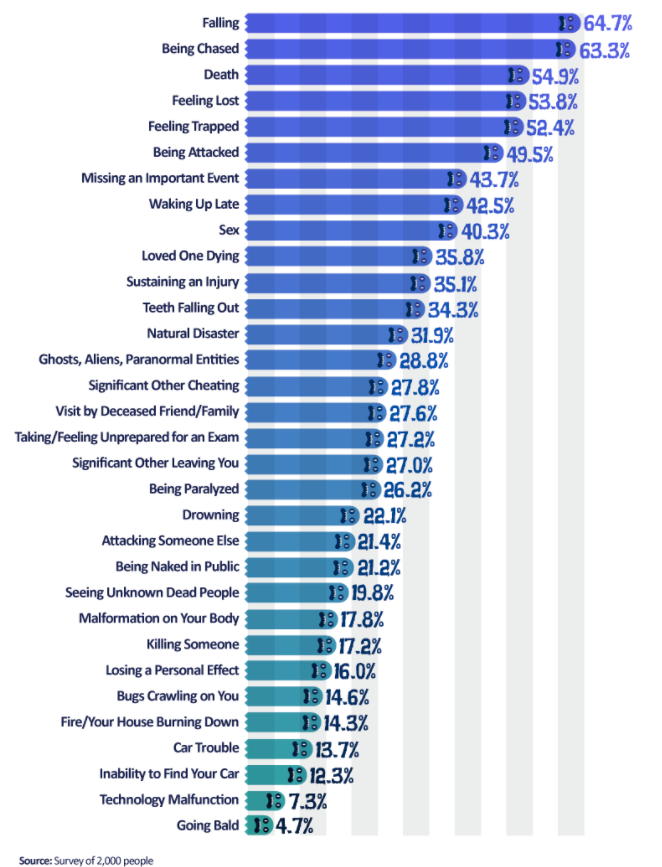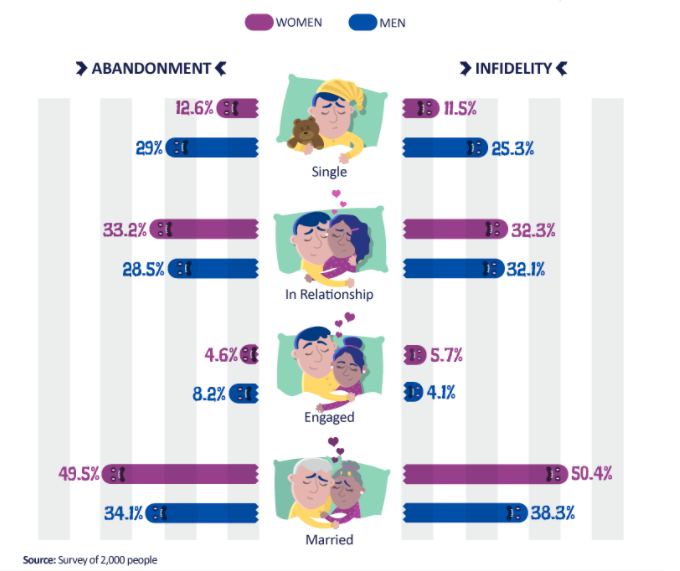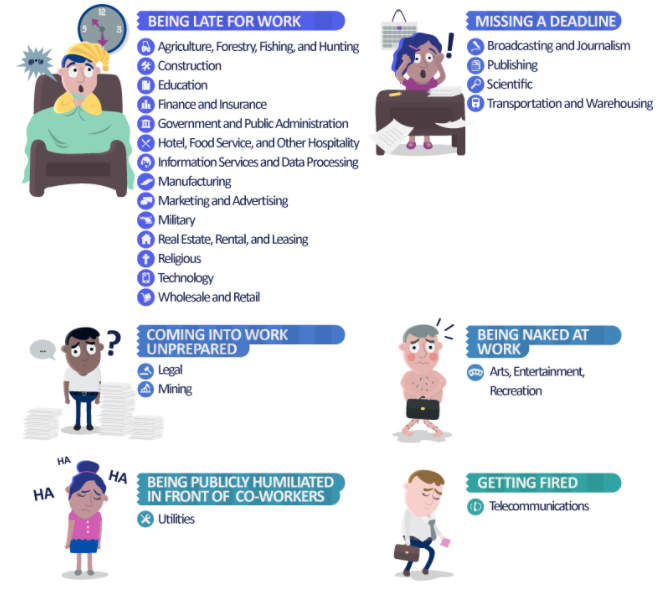32 of the most common nightmares -- and why you're having them

There are few things more enigmatic than the dream world — the part of the mind that only unlocks when all else is still. Equally, there aren’t many things more disturbing than a nightmare—realistic and terrorizing, these are the scenes that can spook us out of sleep.
So why do bad dreams occur? A recent survey conducted by Amerisleep suggests that our nightmares act to reveal hidden anxieties. The data also shows that your sex, marital status and occupation all contribute to the nature of a nightmare. Take a look at these charts.
Based on 2000 participants, here are 32 most common nightmares:

Almost two thirds of the test subjects experienced “falling” during their sleep. One theory behind this dream suggests that when your muscles relax entering sleep, your brain interprets it as an actual fall. Another theory says that dreams about falling are a result of your nervous system gearing down for the night.
Other universal nightmares include experiencing one’s own “death” and “being chased.” But things take an interesting turn when we separate data based on relationship status.
Committed nightmares: data trends featuring abandonment and infidelity:

These charts show women sleep more peacefully when they’re single. The dream fear of infidelity and abandonment almost triples in women who are dating, and is more than four more prominent during marriage.
Men appear to suffer the dream world more while single. But dreams of abandonment shows stronger in men compared to women while both are engaged.
Here are nightmares by profession:

If we accept the theory that nightmares derive from our anxieties, small adjustments in our waking lives could help subdue the occurrence of nightmares. Here we see the majority of participants dreaming they were late for work.
Setting an alarm (or two), getting sufficient rest and/or refreshing your bedding are small but effective methods to help the development of healthy sleep-patterns. If waking up on time becomes a habit, sleeping-in is less likely to be a fear that triggers nightmare.
Are you suffering from nightmares, or, have a dream story to tell? Tweet us at @YahooStyleCA.



